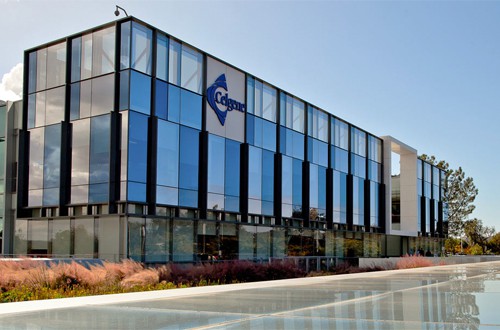
Celgene is facing a delay for its multiple sclerosis candidate ozanimod in the US and elsewhere as the FDA has refused to accept its marketing application for the drug.
The embarrassing setback has arisen because of deficiencies in the “nonclinical and clinical pharmacology sections” of Celgene’s new drug application (NDA) for ozanimod, considered to be one of the most promising candidates in its pipeline.
The company has said it intends to meet with the FDA as soon as possible to decide how to proceed with the application, and is also “re-evaluating the timing of other worldwide regulatory filings” for ozanimod.
The drug is an S1P1/5 receptor modulator in development as a treatment for relapsing-remitting forms of MS, and has been predicted to make rapid headway in the market if approved, thanks to once-daily oral dosing and a benign safety profile. A recent EvaluatePharma reported suggested the drug could achieve sales of around $1.8bn in 2022.
Ozanimod was acquired by Celgene as part of its $7.2bn takeover of Receptos in 2015, part of a drive to expand its business beyond cancer, a view reiterated by Celgene chief executive Mark Alles on a conference call yesterday evening when he said the drug is an important part of the company’s “diversification and growth strategy”.
The efficacy of the drug had been demonstrated by two phase III trials comparing it to Biogen’s injectable interferon beta therapy Avonex, said Alles, who said the company “remains confident” in its profile in relapsing-remitting MS. The FDA’s refusal-to-file (RTF) letter focuses on other elements of the dossier which were “insufficient to allow a complete review”.
“Obviously we are very disappointed, but I believe that at this time we understand the FDA’s position and what we need to do,” he continued. The drug’s second clinical programme in ulcerative colitis is not expected to be affected by the latest regulatory decision.
The company said on the call they did not think the FDA’s position related to safety issues with the S1P class. So far there is just one S1P modulator – Novartis’ Gilenya (fingolimod) – on the market. Gilenya has some off-target effects, such as slowing of the heart that requires monitoring on first dosing, and has been linked to liver function abnormalities.
Celgene has had a difficult few months, with the latest knock coming after its blood cancer blockbuster Revlimid (lenalidomide) failed to hit the mark in non-Hodgkin’s lymphoma, the failure of Crohn’s disease candidate GED-0301, and lacklustre data for psoriasis therapy Otezla (apremilast) in ulcerative colitis.
The company has responded to the difficult period with the $9bn acquisitions of Juno Therapeutics – giving it a stake in the emerging CAR-T cancer immunotherapy market – as well as paying $7bn for Impact Biomedicines to add late-stage candidate fedratinib for myelofibrosis and polycythemia vera.




